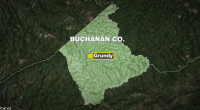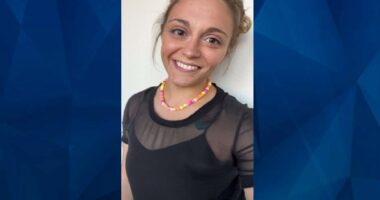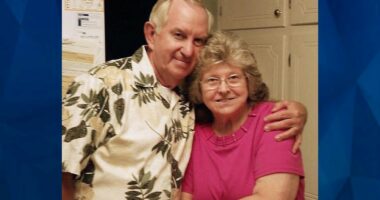Share this @internewscast.com
On the left is President Donald Trump conversing with reporters aboard Air Force One as he travels from Calgary, Canada to Joint Base Andrews, Maryland, on Monday night, June 16, 2025. (AP Photo/Mark Schiefelbein) Center is U.S. District Judge Aileen Cannon from the Southern District of Florida. On the right is Ryan Routh, the man suspected in an attempted assassination of Donald Trump on Sunday, Sept. 15, 2024. (Martin County Sheriff’s Office via AP)
U.S. District Judge Aileen Cannon has dismissed a request from the accused in the attempted assassination of President Donald Trump, who sought to have the jury questionnaire for his impending criminal trial made public.
This refusal represents the latest courtroom setback for Ryan Routh, a 59-year-old man alleged to have hidden with a rifle at Trump International Golf Club in West Palm Beach, Florida, on September 15, 2024, intending to shoot the then-Republican presidential candidate. When discussing procedures before jury selection, Routh’s attorneys contested a suggested plan to keep the jury questionnaire hidden from public view before the trial.
Love true crime? Sign up for our newsletter, The Law&Crime Docket, to get the latest real-life crime stories delivered right to your inbox.
Cannon outlined the two parts that would take place in a status conference regarding jury selection procedures. Part one, she said, would be public and “unrestricted” regarding the general logistics of jury selection, while part two would “proceed in sealed session and focus on a substantive discussion of the proposed juror questionnaire itself.”
It is this juror questionnaire that Routh’s legal team wanted unsealed, but Cannon, a Trump appointee who also presided over and later dismissed his Mar-a-Lago classified documents case, denied this request and additionally found that making part two of the conference publicly available would carry “significant risk.”
“The Court finds, at this juncture, that sealing Part II of the status conference is a necessary and sufficiently tailored means of avoiding the significant risk of tainting the jury pool from pre-trial dissemination of substantive questions proposed for inclusion in a jury questionnaire,” Cannon wrote in her Tuesday order.
“In reaching this determination, the Court has balanced Defendant’s and the public’s strong interest in openness of judicial proceedings against the critical need to ensure a fair, uncontaminated, and impartial jury pool in this case of high public interest,” the Southern District of Florida judge added.
The status conference is taking place on Wednesday in Fort Pierce, Florida. In a separate order, as Cannon noted, Routh’s request to attend virtually was denied. His trial on five charges, including attempted assassination of a major presidential candidate, possessing a firearm in furtherance of a crime of violence, and assault of a federal officer, is set to begin on Sept. 8.
This is not the first loss Cannon has handed Routh in the lead-up to the much-anticipated trial. In May, she rejected his bid to dismiss the two final counts in his indictment: possession of a firearm with an obliterated serial number and illegally owning a firearm as a convicted felon. Days later, she denied his motion to suppress a witness identification made shortly after the alleged assassination attempt.
The purported attempt to kill the then-former president occurred less than two months before the general election, which Trump won. It was the second alleged attempt against his life on the campaign trail, with the first taking place during a Butler County, Pennsylvania, rally in July, where the gunman was killed.















